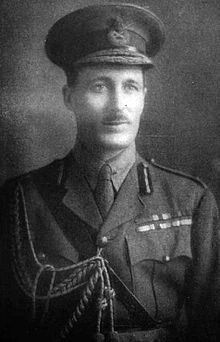Sir Herbert Hart | |
|---|---|
 Herbert Hart, in the uniform of a brigadier general | |
| Administrator of Western Samoa | |
| In office 18 April 1931 – 25 July 1935 | |
| Monarch | George V |
| Preceded by | Stephen Allen |
| Succeeded by | Alfred Turnbull |
| Personal details | |
| Born | Herbert Ernest Hart 13 October 1882 Taratahi, New Zealand |
| Died | 5 March 1968 (aged 85) Masterton, New Zealand |
| Awards | Knight Commander of the Order of the British Empire Companion of the Order of the Bath Companion of the Order of St Michael and St George Distinguished Service Order Mentioned in Despatches (5) Colonial Auxiliary Forces Officers' Decoration Croix de guerre (France) |
| Military service | |
| Allegiance | New Zealand |
| Branch/service | New Zealand Military Forces |
| Years of service | 1901–1930 |
| Rank | Brigadier General |
| Commands | 3rd New Zealand (Rifle) Brigade (1918–19) Sling Camp (1918) 2nd Infantry Brigade (1918) 4th Infantry Brigade (1917–18) Wellington Infantry Battalion (1915–17) |
| Battles/wars | |
Brigadier General Sir Herbert Ernest Hart, KBE, CB, CMG, DSO, VD (13 October 1882 – 5 March 1968) was an officer in the New Zealand Military Forces who served during the Second Boer War and the First World War. He later served as the Administrator of Western Samoa and worked for the Imperial War Graves Commission.
Hart volunteered for the Ninth New Zealand South African Contingent, which was raised for service in South Africa during the Second Boer War. By the time the contingent arrived in South Africa, the war was largely over. He saw extensive action during the First World War as a volunteer with the New Zealand Expeditionary Force, first at Gallipoli and then on the Western Front. By the end of the war, he had advanced in rank to brigadier general, commanding a number of brigades in the New Zealand Division.
Trained as a lawyer before the war, Hart returned to New Zealand to resume his legal practice after his discharge from the New Zealand Expeditionary Force. He later served as Administrator of Western Samoa from 1931 to 1935 and was knighted for his services in this role. From 1936 to 1943, he worked in the Middle East for the Imperial War Graves Commission, a task made difficult by the outbreak of the Second World War and the subsequent fighting in the region. Following his retirement in late 1943, he became involved in Rotary International. He died at his home in Masterton on 5 March 1968.